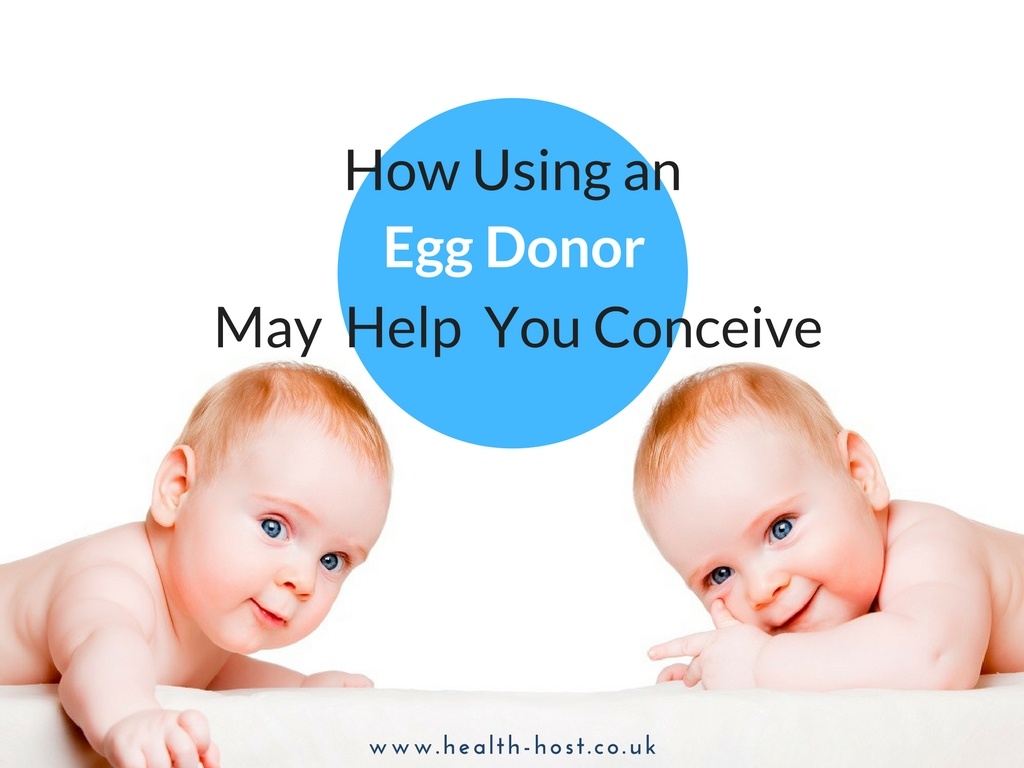Ask any parent and they’ll tell you that having kids isn’t easy. Although, when you hear them say that, you probably imagine cleaning sticky stains off the windows or dealing with a toddler tantrum in a restaurant. You don’t expect the action actual of having – of conceiving – a child to be hard. After all, why should it be? It’s the most natural thing in the world.

Whatever age you are and whatever problems you’re running into, if you’re struggling to conceive, you might be investigating egg donation. Maybe you have a friend who’s tried it, or the option has been recommended by your fertility consultant. Perhaps you’re completely new to the idea and don’t know where to start.
Exploring Your Options
No woman wants to hear that she can’t conceive the traditional way. The most common route to conception for couples struggling with infertility is by using IVF. This is generally for couples where the cause of infertility is a blocked fallopian tube, ovulation disorder, or simply unexplained infertility. Traditional IVF is successful in many cases, but not all, and some couples decide to adopt after unsuccessful rounds of IVF.
Adoption can be a lengthy process and also quite costly. If time and budget are inhibiting factors for you, adoption may not be the best option for your family. You would also need to prepare yourself emotionally for the fact that the adoption you agreed upon may fall through at the end. Some mothers change their minds after their baby is born, and decide they want to raise the child themselves. In other cases, red tape and adoption laws can make it impossible to be united with your dream child.
If adoption isn’t an option for you, you may consider surrogacy. This can be very complicated and is not regulated by the HFEA. If you are thinking about surrogacy, you should seek legal counsel first. Some couples travel abroad to complete this process and have successful results. But it requires a strong trust with the surrogate, a lot of emotional contact, and does not always go as planned.
Egg Donation

Egg donation varies from traditional IVF treatment in the sense that the intended mother does not go through stimulation and egg retrieval herself, but uses an egg from another woman.
Using a donor egg to conceive and start a family has been an amazing development for many women around the world. You’ll experience pregnancy, give birth, and be emotionally and physically connected to your baby. But you’ll need to come to terms with the fact that your child won’t share your DNA. A woman’s egg is the size of a full stop, almost invisible without a microscope. Yet in that tiny little egg lies half of your child’s genetic makeup.
The idea of having a child who is not tied to you genetically can be hard for many women to accept, so you’re advised to discuss your feelings openly. Perhaps seek professional help to talk about any concerns or fears you may have. It may be of some comfort to know that you can use your partner’s sperm for fertilisation, so he will still have a genetic link to the child. You can also choose a donor who shares similar physical traits to you, such as height, size, hair and eye colour.
How Does It Work?
There are two options when it comes to using donor eggs, fresh and frozen, and the cost and implications for both vary slightly. There has been a sharp rise in the number of couples opting for frozen donor egg IVF for several reasons.
Let’s take a closer look:
- Price: A cycle of frozen donor eggs is a lot cheaper than fresh donor eggs (usually about half the price). Some clinics also offer a moneyback guarantee if you don’t deliver a baby, or provide financing plans to help with the costs.
- Convenience: It’s easy to choose a donor these days, as the process becomes more normal and accepted. You can do so online, from the comfort of your own home.
- Cycle Synchronization: When using a frozen donor egg, you can start immediately, when you’re emotionally prepared and your body is ready. That could be as soon as after your next period, without having to synch your cycle to that of the donor. You won’t have to take high levels of hormone medication to alter your cycle and the risks associated with synchronization are removed.
- Lack of Emotional Pull: Using a frozen egg means that you’ll never need to have any contact with the donor, which may make it easier to emotionally distance yourself from the donor.
- Choice: You’ll have a higher selection of donors, as you can choose from a national donor bank, rather than having to select a donor who lives close by.
Thanks to huge scientific advancements in egg freezing and thawing protocols, frozen donor egg treatment has a higher success rate than ever before.
Using a donor egg may not be the right choice for every couple, and no one can make up your mind for you. But if you had all but given up on your dream of starting a family, using a donor egg might just be the answer you’ve been looking for.
Leave a Reply